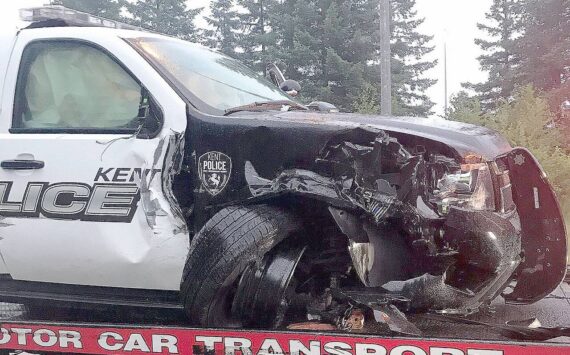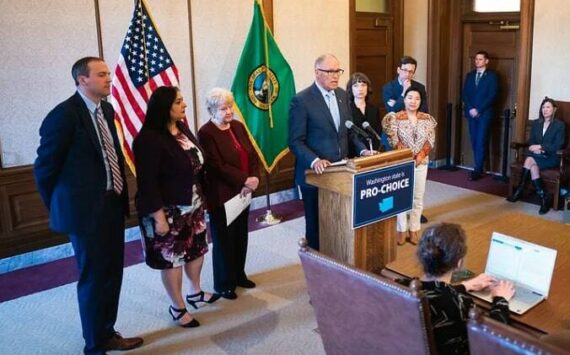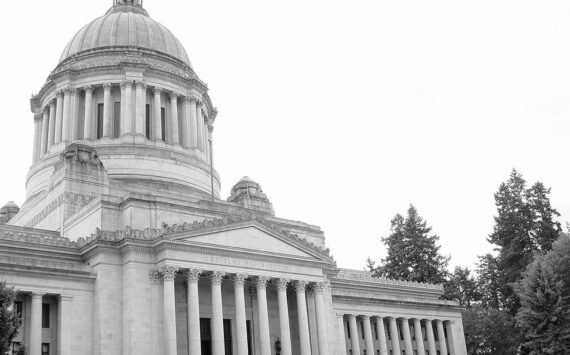When lawmakers left the Capitol in the pre-dawn hours Saturday they had passed a new budget and agreed on a record-setting hike in the state property tax. They launched a sweeping paid family leave program and sent billions of additional dollars from state coffers to public schools.
But they aren’t done yet.
A festering dispute on water rights policy is impeding action on a capital budget to support initiatives of local governments, special districts and a regiment of nonprofit organizations in Washington.
Lawmakers also haven’t acted to ensure some Snohomish County homeowners who didn’t get to vote on Sound Transit expansion plans won’t have to pay the transit authority’s new property tax. And they continue to bicker on a way to ease a bit of the pain of Sound Transit’s surging car tabs.
Monday marked the 13th day of a third special session, the 178th day of a legislative marathon. Here are a few prominent decisions made by lawmakers this year and a few items left on their to-do list in the extra session that can last until July 20.
Money, money, money
Gov. Jay Inslee signed a two-year $43.7 billion budget at 11:15 p.m. Friday to avert a government shutdown at midnight. Until Friday, the Democrat-controlled House and Republican-led Senate engaged in a months-long stare-down on this spending blueprint and a separate plan for complying with a Supreme Court order on school funding.
This budget spends $5.2 billion more than the last one. There’s money for safety upgrades and increased staff at the state’s two psychiatric hospitals, and to begin a slow transformation to providing more care in the community for those with mental illness. There’s also money to provide 1,800 more children with early learning assistance, 900 students with financial aid and thousands of state workers with pay raises.
McCleary matter
Under a deal passed Friday, the state will put an additional $7.3 billion into education in the next four years of which $1.8 billion is included in the new budget. Lawmakers thinks this will satisfy the high court, which set Sept. 1, 2018, for the state to be positioned to provide ample funds to the public school system.
The complex solution caps local school levies at a lower level, restricts how school districts spend those dollars, sets limits on what can be used for teacher salaries and will push teachers into a state-financed health insurance plan.
Tax hikes, tax cuts
To pay for McCleary, the state share of the property tax is going up a whopping 43 percent in 2018. The rate will be $2.70 per $1,000 of assessed valuation, an 81-cent increase. Under bills awaiting Inslee’s signatures, sales tax also would be collected on bottled water and on purchases made online.
Not everyone will pay more. Another bill heading to Inslee extends, expands or creates 13 tax exemptions. One would lower the tax rate paid by manufacturing businesses to the same level paid by the Boeing Co. Others would extend a tax cut for the film industry and exempt martial arts instruction from a sales tax.
A new era
Washington will merge its early learning programs and child protective services into a new Department of Children, Youth and Families. The focus is on helping families deal with challenges ahead of them rather than wait until they’ve reached the legal system.
Meanwhile, workers in Washington would be entitled to paid time off for the birth or adoption of a child or for the serious medical condition of the worker or the worker’s family member under a paid family leave bill headed to Inslee. Eligible workers could take up to 12 weeks of leave for either a family or medical issue beginning in 2020, or 16 weeks for a combination of both. Workers and employers — except those with fewer than 50 employees — would start paying premiums Jan. 1, 2019.
Easing the stakes
Lawmakers this year agreed to revise the rules requiring students to pass tests in biology, math and English language arts to graduate from high school. Their bill suspends the biology test requirement immediately, enabling several hundred students who failed the test to get their diploma. Those who do not pass one or both of the other exams will have a new path to appeal.
No texting
A new law taking effect July 23 bars use of a personal electronic device while behind the wheel of a motor vehicle. That means no texting or checking emails even while at a stop light. Inslee, citing a need to step up the fight against distracted driving, vetoed a section delaying its effective date to 2019.
Hung up on Hirst
The Hirst decision issued last fall by the Supreme Court put the onus on counties to ensure the quality and quantity of water for existing wells and streams is not undermined by the drilling of new wells. Up until that point, counties had been relying on the state Department of Ecology to determine whether there is enough water for a new well.
There’s been a near halt in the drilling of wells in rural areas. Senate Republicans want to turn the clock back to the way it was before Hirst, while House Democrats want to be able to manage the water resources in new ways. A deal seemed imminent early Saturday and then disappeared.
Absent an agreement, Republican senators won’t vote on a capital budget. Frustration boiled over around 3 a.m. Saturday. Democrats and Republicans united in the House to pass the capital budget they want. Rather than debate it, senators adjourned for the day.
Sound Transit silence
Finally, some Snohomish County homeowners whose property is partly inside and partly outside the Sound Transit district are waiting for help. They live on the part that is outside (and couldn’t vote on the transit ballot measure) but got a bill to pay the transit agency property tax on the portion that’s inside.
A bill to remedy the situation is in the House. There’s no opposition, yet the measure can’t seem to get to the finish line. What seemed a simple fix has taken so long that homeowners must pay the tax this year as the bill wouldn’t be in force until 2018.
Finally, the two chambers continue to be at odds on how to deal with a surge in the cost of car tab fees resulting from voters approval of the Sound Transit 3 expansion plan in 2016. That decision increased the motor vehicle excise tax rate used by Sound Transit from 0.3 percent to 1.1 percent.
Both chambers want to force Sound Transit to use a different model for calculating the value of vehicles. This would reduce the amount paid for most tabs. House Democrats would provide vehicle owners a rebate or credit. Senate Republicans want to go further and repeal some of the increase in motor vehicle excise tax rate increased passed by voters. There have been no negotiations on a compromise.







